This article was co-authored by Jonathan Soormaghen. Jonathan Soormaghen is a Career Coach and Founder of Resume Advisor, a career counseling firm that specializes in creating personalized products such as resumes, CVs, cover letters, and online branding tools to propel clients toward their next career milestone. Jonathan holds a BA in Political Economy from the University of California, Berkeley, where he was honored to serve as the Valedictory speaker of general commencement. Prior to founding Resume Advisor, he worked in management consulting and finance at companies including Accenture, Target, and Ernst & Young. Jonathan's clients have landed job offers from leading firms including Netflix, Google, Microsoft, Amazon, Facebook, Apple, Uber, Deloitte, KMPG, Accenture, and Merrill Lynch.
There are 11 references cited in this article, which can be found at the bottom of the page.
This article has been viewed 69,500 times.
Being terminated, whether you were laid off or fired, is never easy. It can be even more difficult to explain well on a job application. An application differs from a job interview or your resume in that it is a legal document. Due to this, it is vital to be truthful regarding your previous job termination, as it becomes a part of your permanent record with the company. By honestly describing your termination, crafting concise written answers, and providing important context for understanding your layoff or firing, you can explain this difficult event successfully.[1]
Steps
Telling the Truth
-
1Be honest about what happened. It is critical to be accurate when describing the circumstances of your job termination. For example, if you were fired, you should not say that you were laid off. If your prospective employer discovers that you misled them in describing your termination, it can damage your trustworthiness as a candidate and prospective employee.[2]
- It is vital that what you say would be confirmed by your old employer in a reference check. Set yourself up for success by being as honest as possible.
- Honesty can also help clarify any doubts or lay to rest any questions your employer may have.[3]
-
2Soften your language. You can describe your termination in less harsh terms while still being truthful. This will allow some distance between your candidacy and any unpleasant details of your termination.[4]
- For example, rather than saying, “I was fired for stealing office supplies,” you can say, “Involuntary separation.” Rather than saying, “We both agreed I was bad at accounting and parted ways,” you can say, “Mutual separation.”
Advertisement -
3Describe the truth positively. If applicable, try to describe your termination in a light that might be positive for the job you’re applying for. For example, if you were fired from a grocery store for focusing too much on helping the customers and not enough on restocking the shelves, your focus on customer satisfaction could be seen as an asset for a job in customer service.[5]
- You might say, “I was terminated from my job for spending too much time focusing on customer satisfaction, which is why I’ve decided to make my passion for helping customers the focus of my career going forward.”
- Reframing how you understand your own termination can be helpful as you move forward in your career. Did you learn something valuable about yourself or interests through your termination? Let that shine through on your application.
Crafting Effective Answers
-
1Strive for simplicity. Simple explanations are usually easiest to understand, but job terminations are rarely simple matters. Try to distill the most important information about why you were terminated, so it’s easy for the hiring manager to understand and relate to others.[6]
- If you’re prompted to provide an explanation for a termination, you could say, “My boss and I had different approaches to project planning,” rather than, “My old boss fired me because I couldn’t get projects done with no notice.”
-
2Be brief. If you spend two paragraphs describing your termination, it could end up being the most memorable part of a short job application. Try to answer the questions you’re asked as fully but succinctly as possible for the most impact. For example, if you’re asked why you were laid off, you could say, “Office permanently closed,” rather than, “Our office was shut with little warning after supervisors decided Tulsa was a better location for the new servicing plant.”[7]
- You are not obligated to provide additional information if it is not requested.
-
3Answer what is actually being asked. Read the questions thoroughly and only answer the question that is being asked, not related questions that might seem corollary. For example, if an application asks, “Have you ever been terminated from a job?” You can simply answer yes. You do not need to add a lengthy description of why, especially if your parting was messy.
- Don't list that you've been terminated unless explicitly asked to do so or there's a specific reason that doing so would help you brand yourself.[8]
- For example, during the COVID-19 pandemic, million of people were laid off. That was nothing to be ashamed of because everyone understood why it happened. Nobody, in general, for any reason, would look down upon you for that.[9]
-
4Don’t assign blame. Your job application is not a place to re-litigate your termination or say it was unjustified. Even if you feel you were treated unfairly or unprofessionally as part of an involuntary termination, rise above it for the purposes of your job application.[10]
- Your prospective employer wants to know more about your character. By taking the high road, you will illustrate your ability to rebound professionally from trying circumstances.
- It can be helpful to process the emotions related to your termination before starting the job hunt again.
Providing Relevant Context
-
1Explain your employee status when terminated. If you were terminated during a trial or probationary period, for example, that is important information for a prospective employer to know. Often employees in this trial situation are notified that they can be terminated “for any reason at any time.” Because of this, they are often let go off for more minor infractions or circumstantial reasons than a tenured employee.[11]
-
2Say if you were laid off. It can help a prospective employer feel at ease knowing you were terminated for circumstances unrelated to your individual job performance. If you were laid off because your entire satellite office was closed or the company experienced financial woes, for example, don’t hesitate to say so.[12]
- Always ensure the information you provide about a layoff is accurate and doesn’t detour into fibbing or bad mouthing.
-
3Secure a good reference from your terminated job. Even if your former manager would not be a good reference for you, a good recommendation from a coworker or client from that company can make your prospective employer feel at ease.[13]
- Securing a reference for a difficult period of time shows that you are not afraid to discuss challenging times with earnestness.
- If your reference for a termination is stellar, you could offer them up on your application when describing your firing or layoff.
-
4Show how you’ve learned. If you’ve taken concrete steps to correct a shortcoming of yours that lead to termination, don’t be afraid to mention it. For example, if you were fired for subpar sales-revenue generation, you could mention that you’ve since taken a class or earned a certificate to improve your sales skills.
- Illustrating how your termination has made you a better candidate speaks to your ability to tackle tough challenges and accept feedback gracefully.
Expert Q&A
Did you know you can get expert answers for this article?
Unlock expert answers by supporting wikiHow
-
QuestionHow do you explain why you were fired?
 Jonathan SoormaghenJonathan Soormaghen is a Career Coach and Founder of Resume Advisor, a career counseling firm that specializes in creating personalized products such as resumes, CVs, cover letters, and online branding tools to propel clients toward their next career milestone. Jonathan holds a BA in Political Economy from the University of California, Berkeley, where he was honored to serve as the Valedictory speaker of general commencement. Prior to founding Resume Advisor, he worked in management consulting and finance at companies including Accenture, Target, and Ernst & Young. Jonathan's clients have landed job offers from leading firms including Netflix, Google, Microsoft, Amazon, Facebook, Apple, Uber, Deloitte, KMPG, Accenture, and Merrill Lynch.
Jonathan SoormaghenJonathan Soormaghen is a Career Coach and Founder of Resume Advisor, a career counseling firm that specializes in creating personalized products such as resumes, CVs, cover letters, and online branding tools to propel clients toward their next career milestone. Jonathan holds a BA in Political Economy from the University of California, Berkeley, where he was honored to serve as the Valedictory speaker of general commencement. Prior to founding Resume Advisor, he worked in management consulting and finance at companies including Accenture, Target, and Ernst & Young. Jonathan's clients have landed job offers from leading firms including Netflix, Google, Microsoft, Amazon, Facebook, Apple, Uber, Deloitte, KMPG, Accenture, and Merrill Lynch.
Career Coach Don't list why unless explicitly asked for the reason, or because the explanation would help you brand yourself. If you were fired for something nobody could blame you for, like the COVID-19 pandemic, you could insert a bullet in your resume stating that you were laid off due to COVID-19. That will help clarify any doubts or questions the employer may have.
Don't list why unless explicitly asked for the reason, or because the explanation would help you brand yourself. If you were fired for something nobody could blame you for, like the COVID-19 pandemic, you could insert a bullet in your resume stating that you were laid off due to COVID-19. That will help clarify any doubts or questions the employer may have.
References
- ↑ https://definitions.uslegal.com/e/employment-application/
- ↑ https://www.monster.com/career-advice/article/how-do-i-explain-getting-fired
- ↑ Jonathan Soormaghen. Career Coach. Expert Interview. 7 October 2020.
- ↑ https://www.careeronestop.org/JobSearch/Resumes/job-applications.aspx
- ↑ https://www.job-hunt.org/job_interviews/answering-why-you-left-fired.shtml
- ↑ https://www.themuse.com/advice/stop-cringing-how-to-tell-an-interviewer-youve-been-fired
- ↑ http://www.jobinterviewtools.com/blog/answers-for-job-interview-questions-about-termination-what-to-say-if-youve-been-fired-laid-off-or-out-of-work/
- ↑ Jonathan Soormaghen. Career Coach. Expert Interview. 7 October 2020.
- ↑ Jonathan Soormaghen. Career Coach. Expert Interview. 7 October 2020.
- ↑ https://www.adn.com/business-economy/2016/12/05/fired-abruptly-dont-badmouth-your-ex-boss-but-do-explore-your-legal-options/
- ↑ http://www.cbsnews.com/news/how-do-you-explain-being-fired/
- ↑ http://www.twc.state.tx.us/news/efte/types_of_work_separations.html
- ↑ http://www.careercast.com/career-news/when-references-attack-getting-recommended-after-layoff













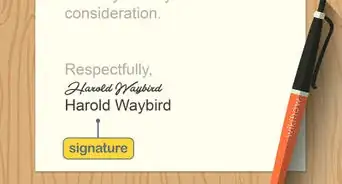
-Step-17-Version-3.webp)



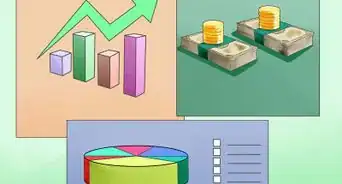
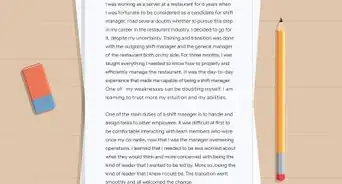
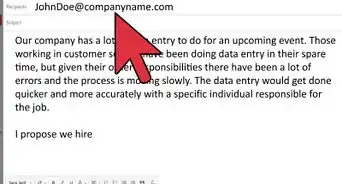

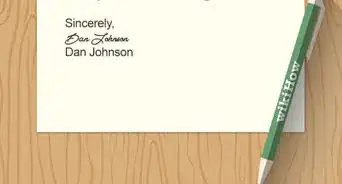


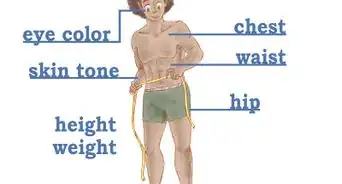








-Step-17-Version-3.webp)



































